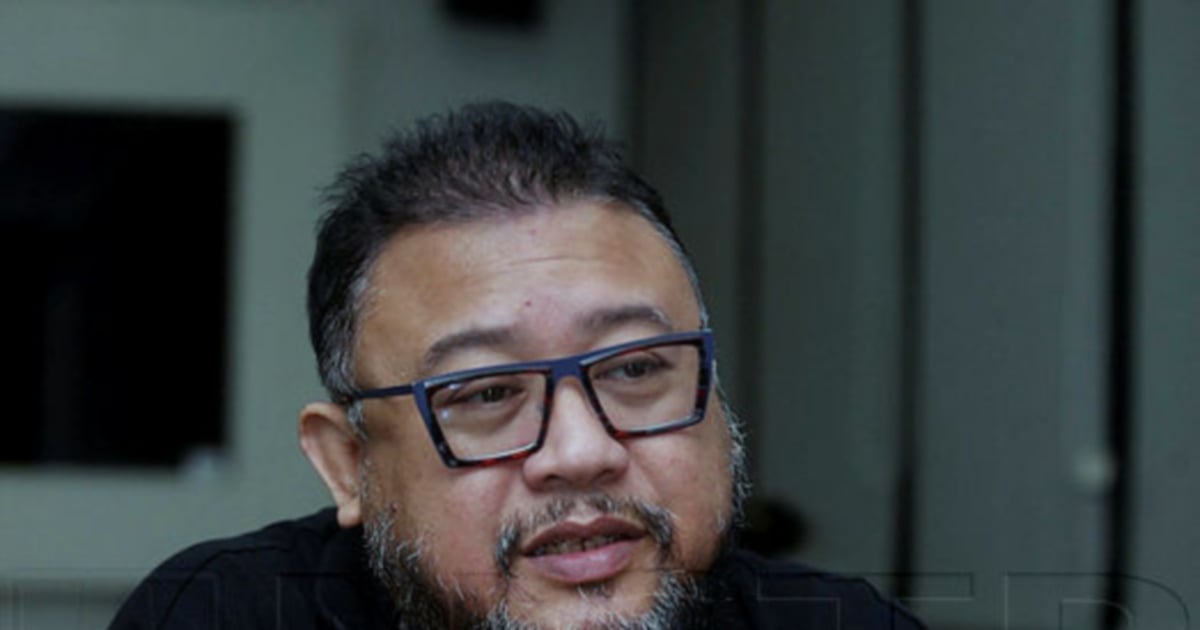IT is often said that as Malaysian society matures, censorship becomes less and less.
Malaysian filmmakers generally agree with this statement, but some of them do feel that certain areas, which we hardly noticed back then, are being snipped by the Censorship Board’s scissors today.
‘Pulau’ producer Fred Chong feels that censorship rules could be more restrictive in certain areas now.
He said: “In the early years, censorship was more about clear moral guidelines, whereas now it is also about sensitivity to multiple interest groups.
“There are many topics we still can’t touch — religion, race, politics, and certain moral issues — which means many potentially great stories can never be written.”
TEMPLE
To prove a point, Fred said that he once shot a dance scene at a Hindu temple, but the board refused to approve it unless he showed them that in India, people are allowed to dance in temples.
“Once I was asked to meet the police as to why my film had police corruption. They said it was wrong, and I was told that police are never corrupt!
“Some subjects that used to be acceptable are now off-limits, cross-dressing for instance.”
Fred said that rigid censorship had resulted in many instances of self-censorship among filmmakers.
“When you’re creating a film knowing you’ll need to self-censor, it distorts the creative process and limits how powerful your story can be.”
He called on filmmakers to emulate Iran, which film industry has won many international awards by its filmmakers circumventing the country’s much stricter censorship laws.
“They focus on themes that will be approved and then perfect the craft — from script to cinematography — within those boundaries.
“It’s a smart strategy, though it still comes with limitations on subject matter.”
He added that Malaysian filmmakers needed to focus on better storytelling and higher acting standards in order to go global.
“The story is king, but without strong performances, even a good script falls flat.”
PRESSURE
Fred said that censorship today is the end result of both pressure from conservative groups, and the lack of chutzpah on the part of some filmmakers.
“Part of the problem is filmmakers sticking to safe, formulaic methods. There’s a big gap between festival films and commercial films here — ideally, a great film should work as both.”
Collaborations with regional countries that shine in international film awards helps boost the local industry.
“Yes, it helps, especially with countries that have found creative ways to work within censorship. But in Malaysia, there’s not enough active effort or industry support to make these partnerships happen.”
Fred admires how India has evolved in terms of censorship.
“They’ve pushed boundaries yet built a thriving industry. We can take a good, hard look at them.”
When asked if censorship caused filmmakers to premiere their work overseas, Fred said that it all depended on the film, their team and their networks.
“In reality, 99 per cent of Malaysian films never premiere overseas — so censorship isn’t the only reason. It’s also about whether the film has the quality and connections to reach those platforms.”
FORTRESS
‘Papadom’ producer Datuk Afdlin Shauki said that before 2000, the board was a virtual “fortress”.
“You submitted, they cut, end of story. Post-2000, there’s more conversation, but also more unpredictability.
“You can explain your intent now, but it doesn’t guarantee you’ll win.”
He added that filmmakers still had to avoid the “big four” — religion, politics, race, and sexuality.
“Some of these boundaries still make sense, but others feel like they’re stuck in a different decade.
“On my part, I’ve had political satire toned down, and sometimes I’ve managed to keep scenes after explaining.”
He revealed that one of the strangest things encountered by a fellow filmmaker was when the censors wanted the thieves in his movie scene to stop at the red lights while escaping from the police!
“LGBT themes, and questioning religious bodies are even harder to touch today. Partly because of the board, but also because public outrage spreads faster than ever.”
‘Impak Maksima’ director Dr Ahmad Idham Ahmad Nadzri said that people have become more exposed to content in the age of social media, and can better see what is required of them by the censors.
“When I do horror, there is no reference point. Censorship is open here, so I always discuss things with the board, and they have always kept an open mind,” he said.
He added that these days the board focuses more on grading movies than snipping scenes.
“Films are given various grades such as U and 18, and that gives viewers a clearer picture of what to expect,” he said.
MULTI-RACIAL
Ahmad Idham admitted that Malaysia was not ready to do away with censorship, as it was a multi-racial nation.
“Filmmakers tend to take advantage of too much freedom. Things can only change with the level of education in society, as this will make more people understand the do’s and don’t’s of filmmaking.”
Ahmad Idham said that censorship could not be blamed for stunting the growth of the film industry, but a lack of good planning and setting good targets.
“We do not have a proper policy to have our movies go international. The government must structure a proper programme for the internationalisation of local films. Set specific targets for filmmakers to achieve internationally.”
SHAW
‘Enam Jilake’ director Aziz M Osman said that the dilemma between film practitioners and the board has existed since the era of Shaw and Keris Film in Singapore.
“The film, ‘Ali Baba Bujang Lapok’, was once banned from public screening on the grounds of touching on religious sensitivities and current politics.
“There are also many films featuring female stars bathing in the river. In ‘Cemburu’, the two main actors embraced passionately and appeared to be kissing.
“The film, ‘Mogok’, criticised the policies of the Singapore government at that time,” he said.
He added that his 1992 movie ‘Fantasia’ was banned because it contained ‘tahyul’ or superstition.
“However it was allowed in many earlier films and it is once again popular today.”
Aziz said that censorship depends mostly on the tastes, exposure and moods of those in charge of the board.
“I envy Indonesian, Thai, Singaporean and Filipino viewers who go for ‘smart’ films. It is not that our filmmakers are not capable of making such films but they often think ‘can this film get past the censorship board’?’
“Syafiq Yusof and Namron are lucky with ‘Sheriff’ and ‘One Two Jaga’.”
SYMBOLISM
Aziz has learnt from the late director S Sudarmaji to use symbolism to bypass censorship.
“For a scene of passionate between a wife and her lover, he showed viewers a tractor ploughing the ground and a piling machine digging a hole in the ground. This is a very good way of showing what cannot be shown.”
He opined that to make films that are globally popular, filmmakers must create universal stories.
“We have such stories in abundance. But we are not ready to open our treasure chest of stories. World cinema is not about action-packed adventures that are explosive and destructive.”
SCRUTINISED
‘Sumpahan Jerunai’ producer Datin Wendy Wong said that during earlier times, films were scrutinised for their portrayal of race, religion, and morality, reflecting the multicultural fabric of Malaysian society.
“Themes that challenged the status quo or were deemed politically sensitive were often heavily edited or banned. Filmmakers had to adhere to strict guidelines to ensure their works conformed to the moral and cultural expectations of the time.”
She added: “Whether these taboos are still needed, opinions vary. Some argue that maintaining these restrictions protects cultural integrity and social harmony, while others believe that moving beyond these taboos could foster greater artistic freedom and encourage more diverse storytelling.”
Wong said that the evolution of regulations reflected broader societal changes.
“Filmmakers must remain vigilant and adaptive, balancing creative expression with the realities of censorship in the storytelling.”
© New Straits Times Press (M) Bhd






